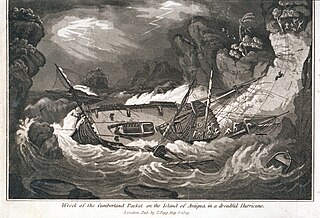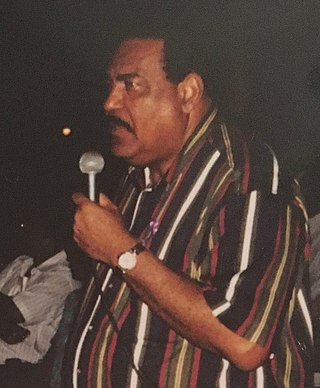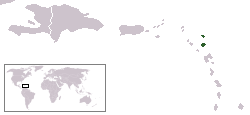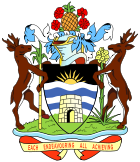
Antigua and Barbuda is a sovereign archipelagic country in the Caribbean. It lies at the conjuncture of the Caribbean Sea and the Atlantic Ocean in the Leeward Islands part of the Lesser Antilles.

The politics of Antigua and Barbuda takes place in a framework of a unitary parliamentary representative democratic monarchy, wherein the sovereign of Antigua and Barbuda is the head of state, appointing a governor-general to act as vice-regal representative in the nation. A prime minister is appointed by the governor-general as the head of government, and of a multi-party system; the prime minister advises the governor-general on the appointment of a Council of Ministers. Executive power is exercised by the government. Legislative power is vested in both the government and the two chambers of the Parliament. The bicameral Parliament consists of the Senate and the House of Representatives.

The history of Antigua and Barbuda covers the period from the arrival of the Archaic peoples thousands of years ago to the present day. Prior to European colonization, the lands encompassing present-day Antigua and Barbuda were inhabited by three successive Amerindian societies. The island was claimed by England, who settled the islands in 1632. Under English/British control, the islands witnessed an influx of both Britons and African slaves migrate to the island. In 1981, the islands were granted independence as the modern state of Antigua and Barbuda.

Sir Lester Bryant Bird was an Antiguan politician and athlete who served as the second prime minister of Antigua and Barbuda from 1994 to 2004. He was chairman of the Antigua Labour Party (ALP) from 1971 to 1983, then became prime minister when his father, Sir Vere Bird, the previous prime minister, resigned.

Sir Vere Cornwall Bird, KNH was the first Prime Minister of Antigua and Barbuda. His son, Lester Bryant Bird, succeeded him as prime minister. In 1994, he was declared a "National Hero".

The following is an alphabetical list of topics related to the nation of Antigua and Barbuda.

The Antigua and Barbuda Labour Party (ABLP) is a political party in Antigua and Barbuda. The current leader of the party is Gaston Browne, who serves as the Prime Minister of Antigua and Barbuda. The party had previously been led by Lester Bird, who was chairman of the party since 1971, and was Prime Minister and political leader in 1994.

Elections in Antigua and Barbuda take place in the framework of a parliamentary democracy.

The Barbuda People's Movement is a left-wing Barbudan nationalist political party in Antigua and Barbuda active only on the island of Barbuda. The party's symbol is the European fallow deer, national animal of Barbuda. The party seeks the secession of Barbuda from Antigua and Barbuda. The party is allied with the United Progressive Party.

The Progressive Labour Movement was a major centre-left political party in Antigua and Barbuda and, until the 2000s, was the only political party to have defeated the Antigua Labour Party in an election.

The United National Democratic Party was a political party in Antigua and Barbuda. It contested the 1989 general elections, winning 31% of the vote but only one seat. In 1992 it was one of three opposition parties to merge into the United Progressive Party.

General elections were held in Antigua and Barbuda on 17 April 1984, the first after the country had become an independent Commonwealth realm in 1981.

The following outline is provided as an overview of and introduction to Antigua and Barbuda:

General elections were held in Antigua and Barbuda on 20 December 1951. The election was the first in Antigua and Barbuda to be held under universal suffrage. Vere Bird formed the Antigua Labour Party in 1951 and led the party to victory, winning all eight elected seats on the legislative council. Voter turnout was 70%.

General elections were held in Antigua and Barbuda on 1 November 1956. The Antigua Labour Party retained all eight elected seats and the party's leader Vere Bird became Minister of Trade and Production after a ministerial system of government was established. Voter turnout was 57%.
The Antigua National Party was a political party in Antigua and Barbuda. The only general elections it contested were those of 1956. Despite receiving 12.5% of the vote, they failed to win a seat.
The Barbuda Democratic Movement was a political party in Antigua and Barbuda. It contested the general elections in 1960 and 1989, but on both occasions received fewer than 160 votes and failed to win a seat.
The Antigua Democratic Labour Party was a political party in Antigua and Barbuda. In the 1960 general elections it received only 66 votes (2.6%) and failed to win a seat. It was part of the Antigua and Barbuda Democratic Movement for the 1965 elections, in which it again failed to win a seat.
The Antigua and Barbuda Democratic Movement (ABDM) was a political alliance in Antigua and Barbuda. It included the Antigua Democratic Labour Party and the Barbuda Democratic Movement and was led by Robert Hall.

General elections were held in Antigua and Barbuda on 18 January 2023 to elect members of the House of Representatives. The Labour Party (ABLP) has held an absolute majority of 15 seats in the House of Representatives after the 2018 general election, with Gaston Browne remaining as prime minister. Browne initiated a constitutional referendum after the 2018 election, which was rejected by voters, and following the death of Elizabeth II in 2022, he announced his intention to organise a referendum for the transition of Antigua and Barbuda to a republican system. Besides ABLP, the United Progressive Party (UPP), Democratic National Alliance, Barbuda People's Movement (BPM), and three independent politicians filed candidacies for the 2023 general election.












